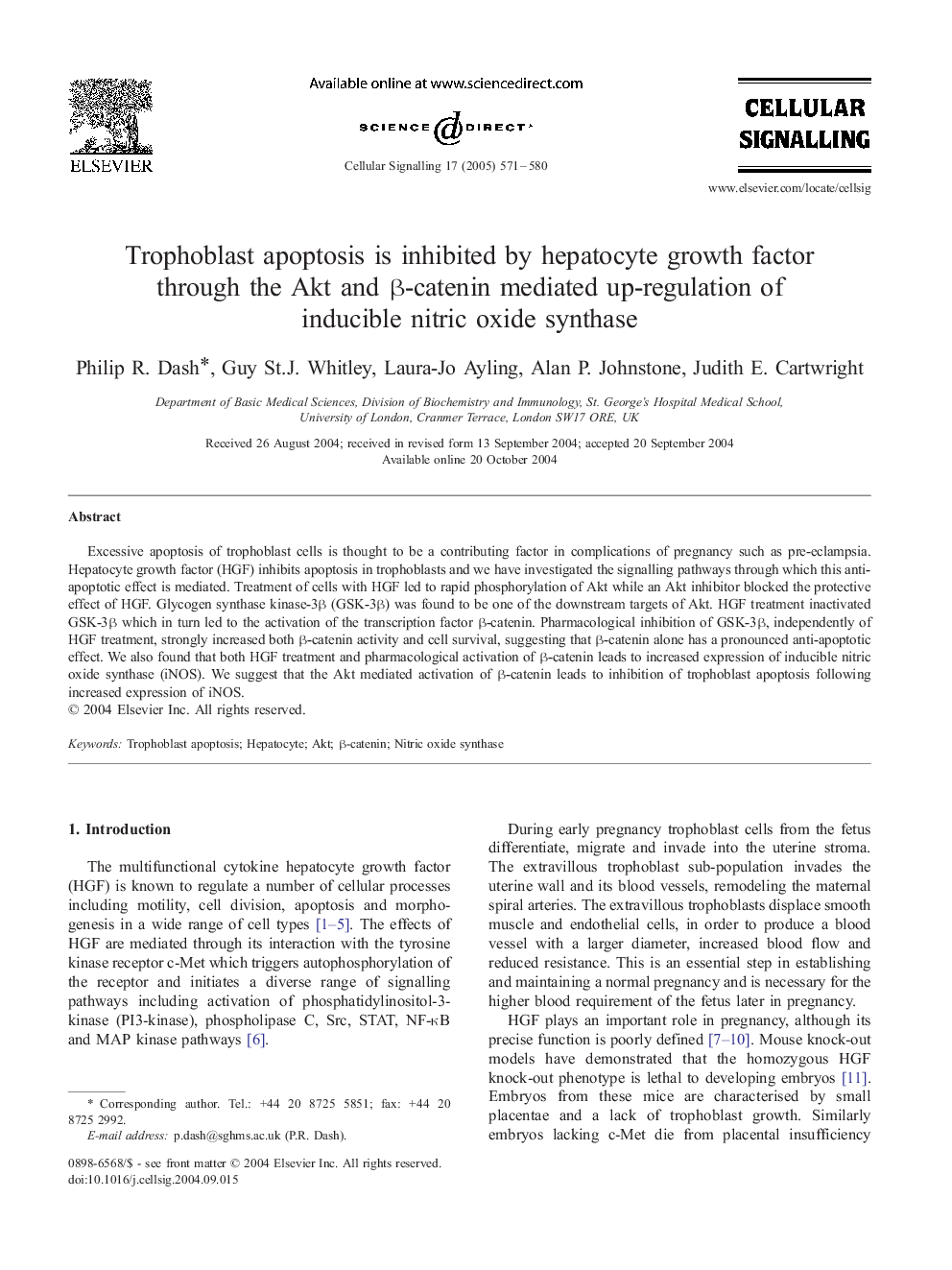| Article ID | Journal | Published Year | Pages | File Type |
|---|---|---|---|---|
| 10816527 | Cellular Signalling | 2005 | 10 Pages |
Abstract
Excessive apoptosis of trophoblast cells is thought to be a contributing factor in complications of pregnancy such as pre-eclampsia. Hepatocyte growth factor (HGF) inhibits apoptosis in trophoblasts and we have investigated the signalling pathways through which this anti-apoptotic effect is mediated. Treatment of cells with HGF led to rapid phosphorylation of Akt while an Akt inhibitor blocked the protective effect of HGF. Glycogen synthase kinase-3β (GSK-3β) was found to be one of the downstream targets of Akt. HGF treatment inactivated GSK-3β which in turn led to the activation of the transcription factor β-catenin. Pharmacological inhibition of GSK-3β, independently of HGF treatment, strongly increased both β-catenin activity and cell survival, suggesting that β-catenin alone has a pronounced anti-apoptotic effect. We also found that both HGF treatment and pharmacological activation of β-catenin leads to increased expression of inducible nitric oxide synthase (iNOS). We suggest that the Akt mediated activation of β-catenin leads to inhibition of trophoblast apoptosis following increased expression of iNOS.
Related Topics
Life Sciences
Biochemistry, Genetics and Molecular Biology
Biochemistry
Authors
Philip R. Dash, Guy St.J. Whitley, Laura-Jo Ayling, Alan P. Johnstone, Judith E. Cartwright,
